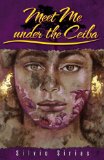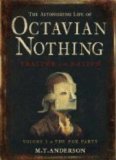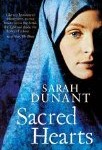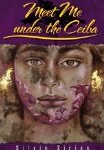
Silvio Sirias is the author of Meet Me Under the Ceiba , which won the Chicano/Latino Literary Prize in 2009. I have read a saddeningly small amount of Latino Literature, so am really pleased that Silvio has agreed to participate in a guest post on my blog today.
, which won the Chicano/Latino Literary Prize in 2009. I have read a saddeningly small amount of Latino Literature, so am really pleased that Silvio has agreed to participate in a guest post on my blog today.
Welcome Silvio!
First off, Jackie, I wish to congratulate you on having recently surpassed 10,000 comments on your blog. That’s quite an achievement, as I can attest from experience—I closed the comment-feature early in my blogging career because I couldn’t bear to see 0 Comments any longer.
Thank you! While we’re sharing nice words I should congratulate you on winning the Chicano/Latino Literary Prize! What was it like to win the award?
Upon receiving the news that the manuscript of MEET ME UNDER THE CEIBA had won the 2007 Chicano/Latino Literary Prize—a award whose legacy now spans over four decades and that the University of California-Irvine sponsors—after ascertaining that the email message wasn’t a hoax, I ran across the campus of the school where my wife and I both work, in the Republic of Panama, to share the news with her.
The celebration has continued ever since.
But the festivities haven’t consisted of merriment, cork-popping, and champagne guzzling. Rather, the true nature of my satisfaction has been a prolonged, serene reflection on the joy of having fulfilled what once seemed like a far-fetched wish: to produce a narrative that could grab and hold the imagination of intelligent readers. The achievement of this dream was confirmed when I learned that the judge of that year’s contest, Rolando Hinojosa-Smith—a writer I’ve long-admired andthe first U.S. author to receive Cuba’s prestigious literary award, the Premio Casa de las Américas—had headed the committee that chose MEET ME UNDER THE CEIBA as the winner of the Chicano/Latino Literary Prize. What’s more, my thrill increased when I read Hinojosa Smith’s succinct verdict: “A fascinating read—very well-written, with a delightful, lively pace.”
That phrase alone—pronounced by one of the pioneers of Latino and Latina literature in the United States—made my decade.
Winning the Chicano/Latino Literary Prize also opened the doors to Arte Público Press—the legendary publisher of U.S. Latino and Latina literature. Nicolas Kanellos, founder and director of Arte Público, read the manuscript within a week of receiving it and, after a brief exchange of emails, offered me a contract. My experience regarding the publication of my first novel, BERNARDO AND THE VIRGIN, had taught me that the book industry moves at a pace that would make snails impatient. But now events were happening at lightning speed—all thanks to the prize.
As you can see, Jackie, the rewards have been emotional as well as tangible.
Still, what I enjoy most about having won the Chicano/Latino Literary Prize, what still generates a warm feeling in my chest, is when I take the time to study the roster of past participants who have either won or placed in the contest. Many of these names are already guaranteed a place in the pantheon of writers of Latin American heritage who write in English and publish their work in the United States. For my name to be now among theirs makes me feel as if I have acquired an infinitesimal grasp on literary immortality. As a reader, student, and teacher of U.S. Latino and Latina literature, I have admired the following authors for years: Ron Arias, Gary Soto, Helena Maria Viramontes, Luis Rodriguez, Lucha Corpi, Francisco X Alarcon, Cherrie Moraga, Demetria Martinez, Benjamin Alire-Saenz, Mary Helen Ponce, and Alberto Rios, among many others. Their names may not ring a bell among most readers, but for those of us who have followed the trials, sacrifices, and toils it took for U.S. Latinos and Latinas to get their work published regularly, they are gigantic, heroic figures.
I have fantasized of a reunion of Chicano/Latino Literary Prize contestants. And when, in my mind, we assemble for the group photograph, you better believe that I will be grinning—like the Cheshire Cat. And when I received my blow-up of the photograph, it will be framed and placed in the most prominent spot of my living-room wall.
That image, where I’m standing shoulder-to-shoulder with these literary stalwarts, albeit existing only in my imagination, is what means the most to me when it comes to having won the prize.
What are your favourite books?
My list of favorite books is so long that it would soon bore your readers. Nevertheless, allow me to touch on the ones that make me green with envy; that is, the ones I wish I’d written:
Don Quixote de la Mancha, by Miguel de Cervantes; One Hundred Years of Solitude and Chronicle of a Death Foretold by Gabriel Garcia Marquez; Twenty Poems of Love by Pablo Neruda; The Power and the Glory by Graham Greene; The Feast of the Goat and The Language of Passion by Mario Vargas Llosa; In Cold Blood by Truman Capote; The Lord of the Rings by J. R. R. Tolkien; The Island of the Blue Dolphins by Scott O’Dell; and The Poisonwood Bible by Barbara Kingsolver.
Can you recommend some other great Latino books?
The books on this list are also ones I wished I had penned. Because of my love for these novels, I recommend them without hesitation:
In the Time of the Butterflies and ¡Yo! by Julia Alvarez; The Mambo Kings Play Songs of Love by Oscar Hijuelos; Dreaming in Cuban by Cristina García; The House on the Lagoon by Rosario Ferre; Bless Me, Ultima by Rudolfo Anaya; The House on Mango Street by Sandra Cisneros; So Far from God by Ana Castillo; The Ordinary Seaman by Francisco Goldman; and Latin Jazz by Virgil Suarez—and, of course, there are many other inspiring novels by Latinos that I’m leaving out—so I beg the understanding of my fellow authors.
Do you follow the Latino prize? Have you read any of the other winners? Can you recommend any of the other winners?
I have followed the contest’s history, and I’ve read many of the works of past participants, which I also highly recommend:
The Road to Tamazunchale by Ron Arias; Baseball in April and Other Stories by Gary Soto; Soft Chaos by Alma Villanueva; The Moth and Other Stories by Helena Maria Viramontes; Always Running by Luis Rodriguez; Cactus Blood by Lucha Corpi; From the Other Side of Night/Del otro lado de la noche: New and Selected Poems by Francisco X. Alarcón; and Loving in the War Years by Cherrie Moraga.
Thank you Silvio! That is a fantastic list of books! I am going to try to make an effort to read more Latino books in the next year and will be referring back to your list frequently.
Silvio has generously agreed to give away a copy of his award winning book. For a chance to win, just ask Silvio a question below.
The giveaway is open internationally until 5am GMT on 20th January, when a winner will be selected at random. Good luck!


• Paperback: 256 pages
• Publisher: Arte Publico Pr (September 30, 2009)
• Language: English
• ISBN-13: 978-1558855922
Link to author’s website: www.silviosirias.com
This post is part of a blog tour, arranged by Latino Book Tours.
Silvio Sirias Blog Tour Dates:
Monday 11th: Book Lover Carol
Tuesday Jan 12th: Brown Girl Speaks
Wed Jan 13th: Regular Ruminations
Thursday Jan 14th: The Tranquilo Traveler
Friday Jan 15th: Pisti Totol
Monday, January 18 at Mama XXI
Wednesday, January 20th at Sandra’s Book Club
Thursday, January 21st at Latino Books Examiner
Friday, January 22nd at Una In A Million
by Toni Morrison – it is very literary, hard to understand and tackles some difficult subjects. If you enjoyed Beloved then I’m sure you’ll like this, but it was too much like hard work for me.









